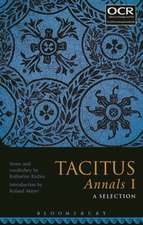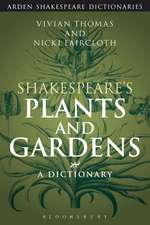Understanding James, Understanding Modernism: Understanding Philosophy, Understanding Modernism
Editat de Professor David H. Evansen Limba Engleză Paperback – 31 oct 2018
| Toate formatele și edițiile | Preț | Express |
|---|---|---|
| Paperback (1) | 239.21 lei 6-8 săpt. | |
| Bloomsbury Publishing – 31 oct 2018 | 239.21 lei 6-8 săpt. | |
| Hardback (1) | 834.38 lei 6-8 săpt. | |
| Bloomsbury Publishing – 19 apr 2017 | 834.38 lei 6-8 săpt. |
Din seria Understanding Philosophy, Understanding Modernism
- 39%
 Preț: 498.72 lei
Preț: 498.72 lei - 23%
 Preț: 192.82 lei
Preț: 192.82 lei - 30%
 Preț: 570.60 lei
Preț: 570.60 lei - 22%
 Preț: 226.51 lei
Preț: 226.51 lei - 22%
 Preț: 259.79 lei
Preț: 259.79 lei - 13%
 Preț: 238.84 lei
Preț: 238.84 lei - 13%
 Preț: 238.22 lei
Preț: 238.22 lei - 13%
 Preț: 258.33 lei
Preț: 258.33 lei - 22%
 Preț: 238.01 lei
Preț: 238.01 lei - 22%
 Preț: 233.08 lei
Preț: 233.08 lei - 22%
 Preț: 226.51 lei
Preț: 226.51 lei - 22%
 Preț: 226.14 lei
Preț: 226.14 lei - 23%
 Preț: 198.93 lei
Preț: 198.93 lei - 23%
 Preț: 197.86 lei
Preț: 197.86 lei - 23%
 Preț: 194.33 lei
Preț: 194.33 lei - 23%
 Preț: 192.64 lei
Preț: 192.64 lei -
 Preț: 194.33 lei
Preț: 194.33 lei - 23%
 Preț: 191.75 lei
Preț: 191.75 lei - 30%
 Preț: 570.34 lei
Preț: 570.34 lei - 30%
 Preț: 539.73 lei
Preț: 539.73 lei
Preț: 239.21 lei
Preț vechi: 306.51 lei
-22% Nou
Puncte Express: 359
Preț estimativ în valută:
45.77€ • 48.95$ • 38.16£
45.77€ • 48.95$ • 38.16£
Carte tipărită la comandă
Livrare economică 18 aprilie-02 mai
Preluare comenzi: 021 569.72.76
Specificații
ISBN-13: 9781501347207
ISBN-10: 1501347209
Pagini: 328
Dimensiuni: 152 x 229 mm
Greutate: 0.44 kg
Editura: Bloomsbury Publishing
Colecția Bloomsbury Academic
Seria Understanding Philosophy, Understanding Modernism
Locul publicării:New York, United States
ISBN-10: 1501347209
Pagini: 328
Dimensiuni: 152 x 229 mm
Greutate: 0.44 kg
Editura: Bloomsbury Publishing
Colecția Bloomsbury Academic
Seria Understanding Philosophy, Understanding Modernism
Locul publicării:New York, United States
Caracteristici
Comprehensive exploration of James's influence on the literature and study of modernism
Notă biografică
David H. Evans is Associate Professor of English at Dalhousie University, Canada. He is the author of William Faulkner, William James, and the American Pragmatic Tradition (2008) and co-editor of America and Violence, a special issue of the Canadian Review of American Studies (2008).
Cuprins
Series PrefaceList of AbbreviationsIntroduction: Unstiffening All Our Theories: William James and the Culture of ModernismDavid H. Evans, Dalhousie University, CanadaPart 1: Conceptualizing James1 The Character of ConsciousnessOwen Flanagan and Heather Wallace, Duke University, USA 2 Redeeming the Wild Universe: William James's Will to BelieveJohn J. Stuhr, Emory University, USA3 The Psychology of Religion: William James's The Varieties of Religious ExperienceMichael Bacon, Royal Holloway, University of London, UK4 The Human Contribution: James and Modernity in Pragmatism and The Meaning of TruthAlan Malachowski, Stellenbosch University, South Africa5 "Ever Not Quite!": William James's A Pluralistic UniverseBarry Allen, McMaster University, Canada6 James's Radical EmpiricismJames Campbell, University of Toledo, USA Part 2: James and Modernist Culture7 James and Bergson: Fighting the Beast Intellectualism with MetaphorsRosa Slegers, Babson College, USA8 William James, Henry James and the Turn Toward ModernismJill Kress Karn, Villanova University, USA9 "Never Reject Anything. Nothing Has Been Proved": William James and Gertrude Stein on Time and LanguageDavid H. Evans, Dalhousie University, Canada10 The Varieties of Robert Frost's Religious ExperienceMark Richardson, Doshisha University, Japan11 Notes Toward the Specious Present: James and StevensKristen Case, University of Maine at Farmington, USA12 Modernist Figures and James's Pluralistic UniversePatricia Rae, Queen's University, Canada13 William James's Stream of Consciousness and the River of the Unconscious in Joyce and ProustGian Balsamo, Stanford University, USA14 "That skilful but slow-moving arranger": Habit in James and ProustLisi Schoenbach, University of Tennessee, USA15 William James and Italian PragmatismGiovanni Maddalena, University of Molise, Italy, and Michela Bella, Università degli Studi Roma Tre, Italy16 James's Pluralism and the Problems of Modern Political and Social ThoughtRobert Danisch, University of Waterloo, Canada Part 3: Glossary17 James on Chance and IndeterminacyKyle Bromhall, University of Guelph, Canada18 James on HabitLisi Schoenbach, University of Tennessee, USA19 James on MoralityDavid Rondel, University of Nevada, USA20 James on Philosophical TemperamentsTom Donaldson21 James on PluralismSusan Dieleman, University of Saskatchewan, Canada22 James on PragmatismColin Koopman, University of Oregon, USA23 James on Psychical PhenomenaErmine Algaier IV, Harvard University, USA24 James on Pure ExperienceJoel Krueger, University of Exeter, UK25 James on Radical EmpiricismLoren Goldman, University of Pennslyvania, USA26 James on the Reinstatement of the VagueRosa Slegers, Babson College, USA27 James on Religious ExperienceMichael Bacon, Royal Holloway, University of London, UK28 James on the Stream of ThoughtAlexis Dianda, The New School, USA29 James on Time and the Specious PresentDavid H. Evans, Dalhousie University, Canada30 James on the Will to BelieveMark Richardson, Doshisha University, Japan Notes on ContributorsIndex
Recenzii
Understanding James, Understanding Modernism collects into a single volume an impressive set of essays by both well-established and emerging experts guiding us through James's entire philosophy, viewed through the prism of literary and cultural modernism. Many of James's well-known ideas-including pragmatism, pluralism, philosophical temperaments, radical empiricism, stream of thought, and the will to believe-are illuminated in strikingly novel ways in this context. It turns out that modernism, emphasizing temporality, change, and the 'flux' of reality in contrast to fixity, abstraction, and unchanging essences, captures much of what is central to James's basic pragmatist, pluralist, and empiricist approach. The book offers an astonishing breadth and coverage, a plurality of perspectives on his thought that James himself would have admired.
With impressive scholarship, these lucid and probing essays trace William James's protean work from book to book and remind us of what an original modern thinker he was. They offer a fresh and convincing account of his intersections with boldly innovative modern writers, beginning with his own brother Henry.
This volume is an insightful and accessible entry into William James's thought, creating new perspectives inside a mapping of the essential ideas. It shows precisely how James translated experience into modernity, negotiating between the claims of science and opening pluralistic worlds in thought and practice. The strength of the collection is the way it addresses the entire range of James's works and offers a wealth of multiple relations between James, modernism and literature.
Evans (English, Dalhousie Univ., Canada) has assembled an impressive collection of original essays examining the varied contributions of philosopher, psychologist, and religious thinker William James (1842-1910) to the project of modernism. James's reflections on the nature of consciousness, religious experience, time, and meaning profoundly affected a range of artists, writers, and social and philosophical theorists-including his brother Henry James, W. E. B. Du Bois, Gertrude Stein, Robert Frost, and Henri Bergson. Essays on Marcel Proust, Frost, Stein, and Wallace Stevens demonstrate how significantly James's thought shaped and unshaped modernist culture. Emphasis is on James's relation to modernist endeavors in the US, the UK, France, and Italy. Students of the history of ideas will particularly value part 3, "A Glossary," which includes essays on 14 terms and concepts key to James's thinking, including habit, morality, pluralism, pragmatism, pure experience, and stream of thought. This volume offers an accessible map of James's relation to modernist aesthetics and intellectual projects and thus provides a rich base for further inquiries into modernism, aesthetics, philosophy, and religion. Summing Up: Highly recommended. Lower-division undergraduates through faculty.
If the other volumes [in the series] are anywhere near as good as this one, they are a bargain . Reading through the volume with its very high and consistent standards of cogency and clarity made me see the work as a really important-and lively-re-assessment of modernism itself, and a book I can no longer do without. Understanding James, Understanding Modernism is a robust defense of pragmatism, pluralism, and religious experience, and the entire volume is merrily complicit in what Evans calls 'the defenestration of metaphysics that would become the central philosophical project of the twentieth century.'
With impressive scholarship, these lucid and probing essays trace William James's protean work from book to book and remind us of what an original modern thinker he was. They offer a fresh and convincing account of his intersections with boldly innovative modern writers, beginning with his own brother Henry.
This volume is an insightful and accessible entry into William James's thought, creating new perspectives inside a mapping of the essential ideas. It shows precisely how James translated experience into modernity, negotiating between the claims of science and opening pluralistic worlds in thought and practice. The strength of the collection is the way it addresses the entire range of James's works and offers a wealth of multiple relations between James, modernism and literature.
Evans (English, Dalhousie Univ., Canada) has assembled an impressive collection of original essays examining the varied contributions of philosopher, psychologist, and religious thinker William James (1842-1910) to the project of modernism. James's reflections on the nature of consciousness, religious experience, time, and meaning profoundly affected a range of artists, writers, and social and philosophical theorists-including his brother Henry James, W. E. B. Du Bois, Gertrude Stein, Robert Frost, and Henri Bergson. Essays on Marcel Proust, Frost, Stein, and Wallace Stevens demonstrate how significantly James's thought shaped and unshaped modernist culture. Emphasis is on James's relation to modernist endeavors in the US, the UK, France, and Italy. Students of the history of ideas will particularly value part 3, "A Glossary," which includes essays on 14 terms and concepts key to James's thinking, including habit, morality, pluralism, pragmatism, pure experience, and stream of thought. This volume offers an accessible map of James's relation to modernist aesthetics and intellectual projects and thus provides a rich base for further inquiries into modernism, aesthetics, philosophy, and religion. Summing Up: Highly recommended. Lower-division undergraduates through faculty.
If the other volumes [in the series] are anywhere near as good as this one, they are a bargain . Reading through the volume with its very high and consistent standards of cogency and clarity made me see the work as a really important-and lively-re-assessment of modernism itself, and a book I can no longer do without. Understanding James, Understanding Modernism is a robust defense of pragmatism, pluralism, and religious experience, and the entire volume is merrily complicit in what Evans calls 'the defenestration of metaphysics that would become the central philosophical project of the twentieth century.'















